This is a sponsored post
In 2020 I am going to be slowing down the pace of our home education
We will still be covering all the academic areas we need to
But we will be focusing more on being in nature
Learning about the environment we live in
And beginning to know and understand ourselves
“When parents offer their children empathy and help them to cope with negative feelings like anger, sadness, and fear, parents build bridges of loyalty and affection.”
― John M. Gottman, Raising An Emotionally Intelligent Child
I want to focus on feelings with the children
Identifying and expressing emotions
Having empathy for others
I want them to know that above all things that they can be
They should be kind
Our emotions need to be as educated as our intellect. It is important to know how to feel, how to respond and how to let life in so that it can touch you. – Anonymous
We are going to think about family and friendships
We are going to think about what makes us us
I am really excited about this new focus in our home education
And I am going to be sharing what we do and how we do it on the blog
“They don’t object to their children’s displays of anger, sadness, or fear. Nor do they ignore them. Instead, they accept negative emotions as a fact of life and they use emotional moments as opportunities for teaching their kids important life lessons and building closer relationships with them.”
― John M. Gottman, Raising An Emotionally Intelligent Child
I am also going to be sharing the resources that we use
And I wanted to share a few now
In case anyone needs any last minute gift ideas this Christmas
But mostly because I suspect others like us
Might be getting ready for a slower, more feelings focused 2020
“For fast-acting relief, try slowing down.” ~Lily Tomlin
We need to ensure our children understand themselves and the world around them
I want to build my children up
Help them have confidence and self belief
Help them to help others
And let them know what whatever, whenever and why ever
I am here
Here are some of the resources I have already collected
For our emotionally charged 2020
And some that I am still collecting!
Usborne Books All About Feelings
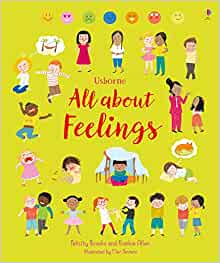
My 9 year old twins love this book. It has prompted lots of discussions and questions about feelings and how we react to our own and others emotions. It has helped them name some of the feelings they have that they could not name before. It helps them to identify how they think others are feeling. A great book for sharing.
Usborne What Are Feelings? Lift The Flap Questions and Answers
My 9 year old twins also like this book which I read with my 5 year old Bea. Bea is very emotional. She struggles with her own feelings and reacting appropiately to others. As she is very young we try to tackle her emotions through books and play. This is a wonderful book for sharing and for using to start a conversation about feelings.
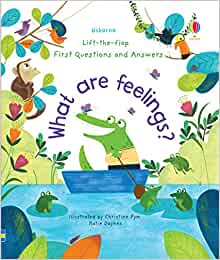
I have dipped in and out of some of the resources that accompany this journal throughout 2019. Next year I want to use it in a more structured way with Esther and William.
Big Life Journal helps children develop strong Social-Emotional Learning (SEL) and growth mindset skills through inspiring stories, colourful illustrations, and engaging guided activities.
In this illustrated journal, children discover:
How to believe in themselves
How to face challenges with confidence
Mistakes are opportunities to grow
They can achieve anything when they’re persistent
We cannot wait to get started in the new year
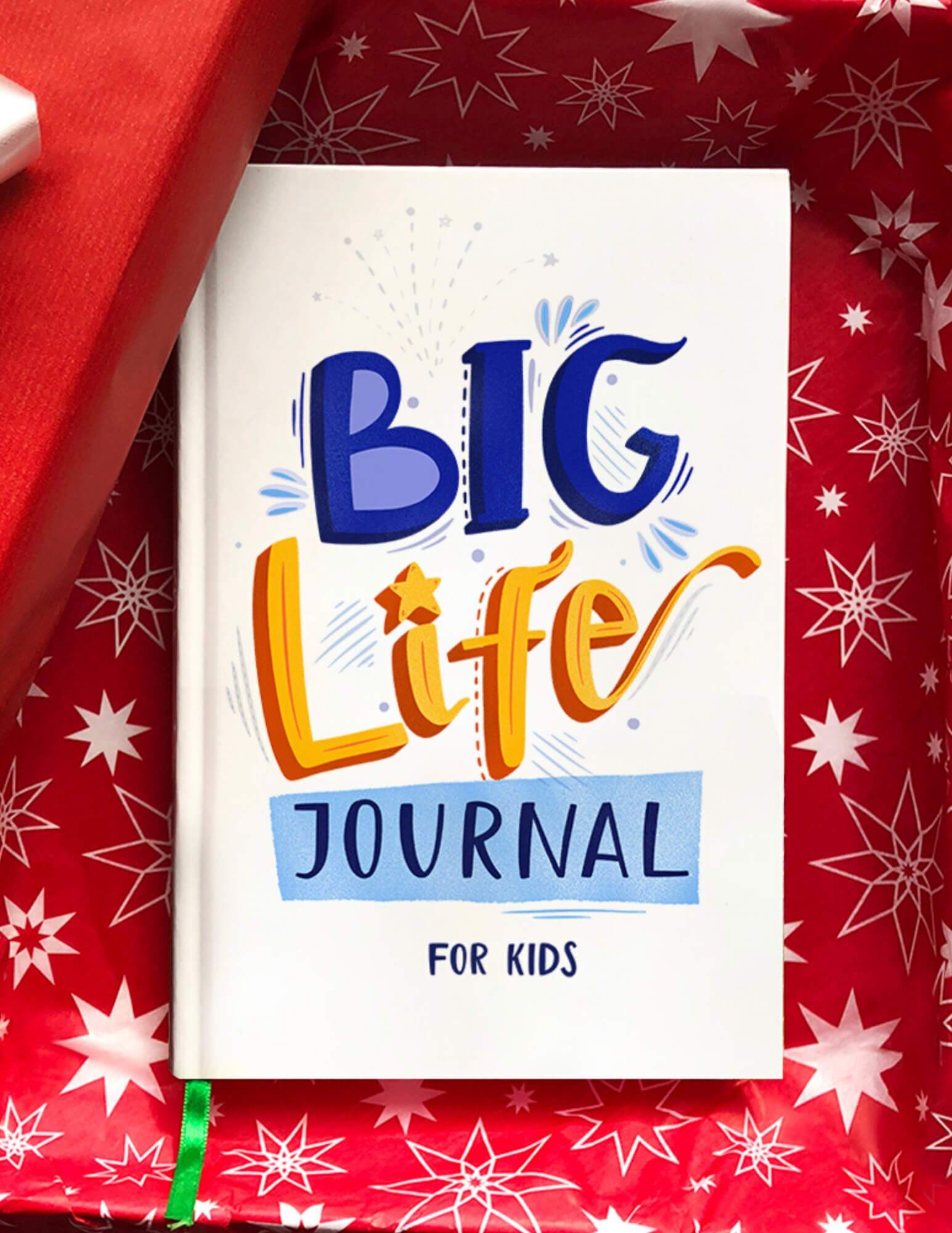
My Little Learner Emotions Flashcards
These cards are great for linking emotions with actions and scenarios. They are also good for learning to read facial expressions. These 10 double sided emotions flashcards are designed to help toddlers understand their feelings and emotions so they can later develop effective ways of managing them. They are also a good tool in helping children communicate how they are feeling and also aid toddlers toddlers with speech delay.
So many ways to include these cards in daily routines and in children’s play to help them develop their emotional intelligence.
Perfect as a gifts but also in helping toddlers/preschoolers with delayed speech or with ASD.
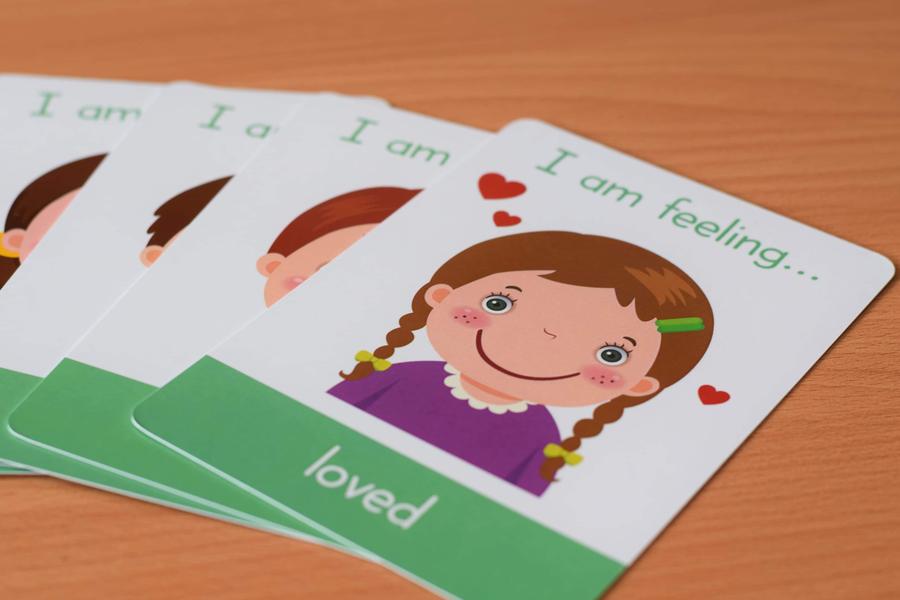
These stamps from Stamps 4 U are a great resource for home education, for family time and for schools.
Trodat’s Emotion Stamp Set consists of ten stamps, each displaying a different facial expression: happiness, sadness, fear, surprise, admiration, disgust, self-confidence, confusion, anger and guilt. Colouring pencils are also included for the children to colour in the faces.
The stamp images are designed on Trodat’s Printy 4933, a self-inking stamp that requires no additional ink-pads and stamps a perfect image every time. They come in a purple box, ideal for storing them and keeping them all together when not in use.
Recognising and understanding facial expressions and the emotions they convey can be challenging for some children. Teaching how to read facial expressions and interpret emotions correctly and helping them to express their feelings is important to improve a child’s social and emotional development.
These stamps can be incorporated into class projects and games, making this aspect of social and emotional learning playful and fun for the children. They are also a helpful alternative for children to express their emotions if they are finding it difficult to express them verbally.
This is a resource worth investing in.
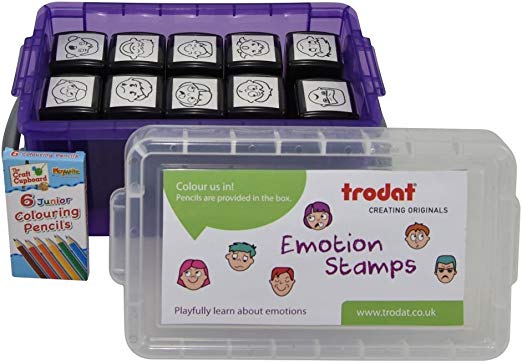
My Busy Bots If You’re Happy and You Know It Busy Bag
We love My Busy Bots and own most of their bags of playful learning resources
Even though they are little our smallest members of our families experience big feelings!
It is so important to connect with your child, guide them and teach them to manage these emotions
This My Busy Bots bag helps to explore feelings in a fun and engaging way
There are 10 monster feeling characters and 10 yellow emoji characters in this busy bag
Children have to match up the monsters and the yellow emoji characters
That are feeling the same emotion whether it’s happy; sad or excited
This is a fun way to focus on feelings with our littlest learners
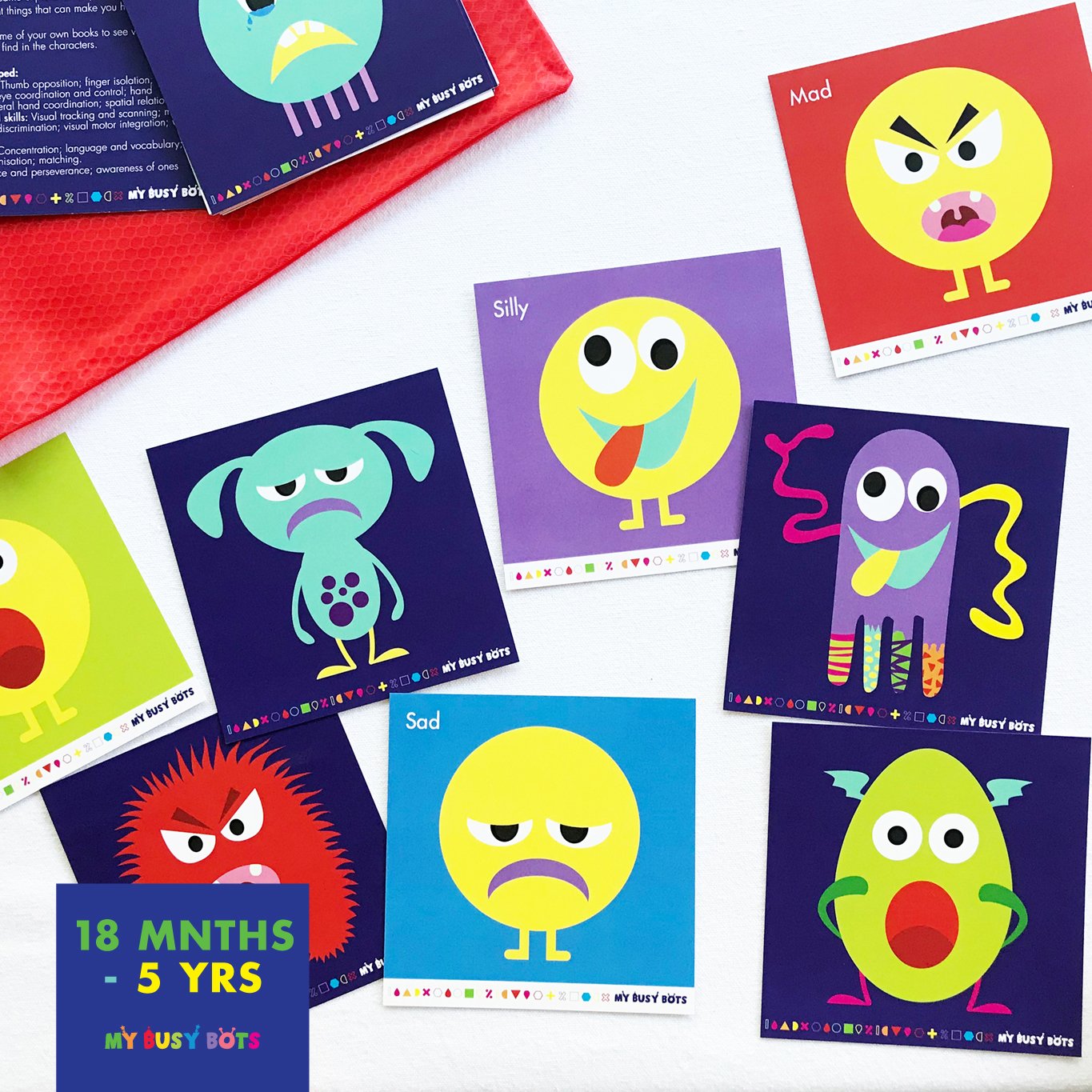
Learning Resources Emoji Cubes
I love these cubes from Learning Resources
They can be used to develop social and emotional skills
Images and prompts will encourage young children to think about how they’re feeling
And to talk about their emotions
These colourful cubes feature familiar emoji faces to get children talking
Roll the emoji face cubes for children to name the emotion displayed
Roll the written prompt cubes and encourage children to write, or talk, about how they’re feeling
So many ways to use these at home and at school
Another wonderful resource for getting children to open up and talk to us and each other
About their feelings
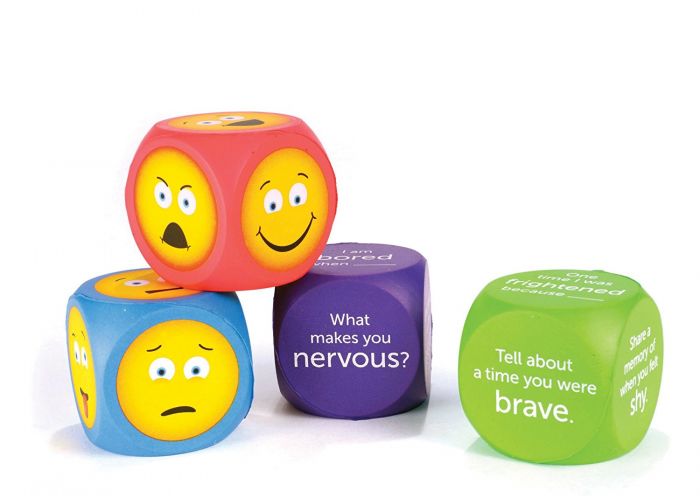
I am hoping that all of these resources
Will help me to build up my children’s emotional intelligence
Emotional intelligence is probably the most important skill we can learn
But it’s rarely taught
If you were lucky, you were born to parents with high emotional intelligence
And you learned self-awareness, empathy and social skills by example
When you’re emotionally intelligent
You understand your own emotions and how to handle them
This may mean that you don’t get frazzled or throw a fit when things don’t go your way
Instead of crying in your Cheerios
You remain calm and strong enough to handle whatever needs to be done
When you’re emotionally intelligent, you also understand other people’s emotions
When someone else acts in anger or frustration
You can easily forgive because you can employ empathy
Emotional intelligence is important whenever you have to face personal challenges
Or interact with other people
It’s a skill you need for all areas of life, including relationships and your career
In the absence of emotional intelligence
Kids are left to find their own ways to handle things
And that often leads to unhealthy coping mechanisms
Unhealthy coping mechanisms can include anything from emotional shut downs to substance abuse
None of these things are productive
I want to help my children understand their own emotions
And have empathy for others
I want to help them develop emotional intelligence
A skill, a gift that will help them throughout their whole life
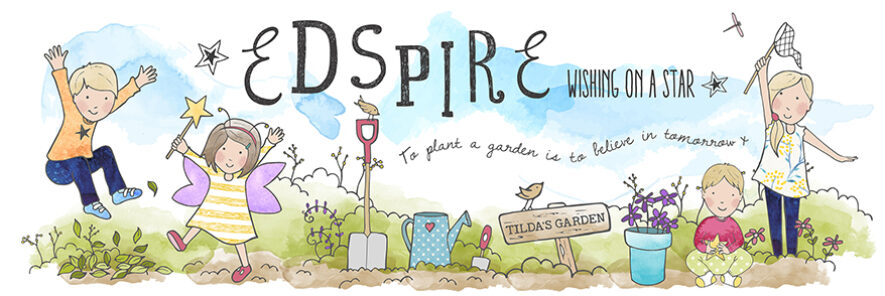
I have kid too, and I know what you mean, exactly. Thank you for your help